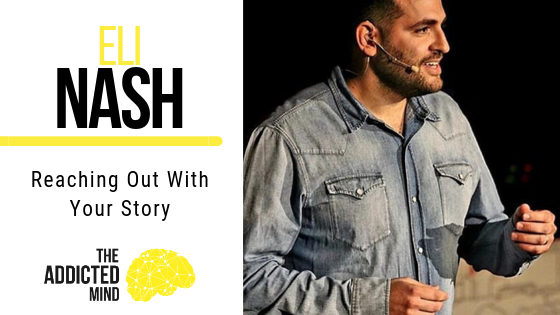Our guest on this episode of The Addicted Mind podcast is Eli Nash, founder of the Mic Drop public speaking training program whose purpose is to help people articulate their stories. Eli has recently gained recognition from his TEDx video about escaping his porn addiction, and he hopes the Mic Drop program provides a platform for others to find connections through being vulnerable enough to speak their truth.
At a young age, Eli started scouring through his family’s mail to find any catalogs with a lingerie section and hiding those catalogs in secret stash places all around his house. When his family got a computer, his secret stashes became hidden computer folders containing pornographic images, and even when he knew he needed to stop this behavior, he simply couldn’t stop. This demoralizing process of wanting but failing to stop consuming this content just fed into the downward spiral, necessitating retreating back into porn even more.
When Eli finally hit his emotional rock bottom, he reached out to his therapist for 5 years and finally came clean about the behavior that he had been hiding in shame for most of his life. His therapist put him in touch with another one of his clients who was having a similar struggle with porn addiction, and Eli became a part of his new friend’s 12-step support group. Through this group, he was finally able to break the shame cycle and realize that he was not alone in his struggles. Brené Brown defines shame as “the fear of not being worthy of connection,” and Eli found this definition to be completely accurate in his own life. When he started to feel worthy of connection, his shame started to break down, and while it was not an overnight change, it was not as overwhelming.
Through this support group, he learned that telling his story brought him some freedom and connection that he had not known for so long. He realized that other people had similar stories and struggles that they had been hiding as well. In 2018, Eli launched Mic Drop as a resource for training people to tell their stories in a way that could aid their recovery journeys from the traumas or addictions in their past and also potentially use them as a jumping-off point for those listening who have similar struggles. Everyone has a story, but we will never know how alike we are until we are open about sharing what we have gone through.

